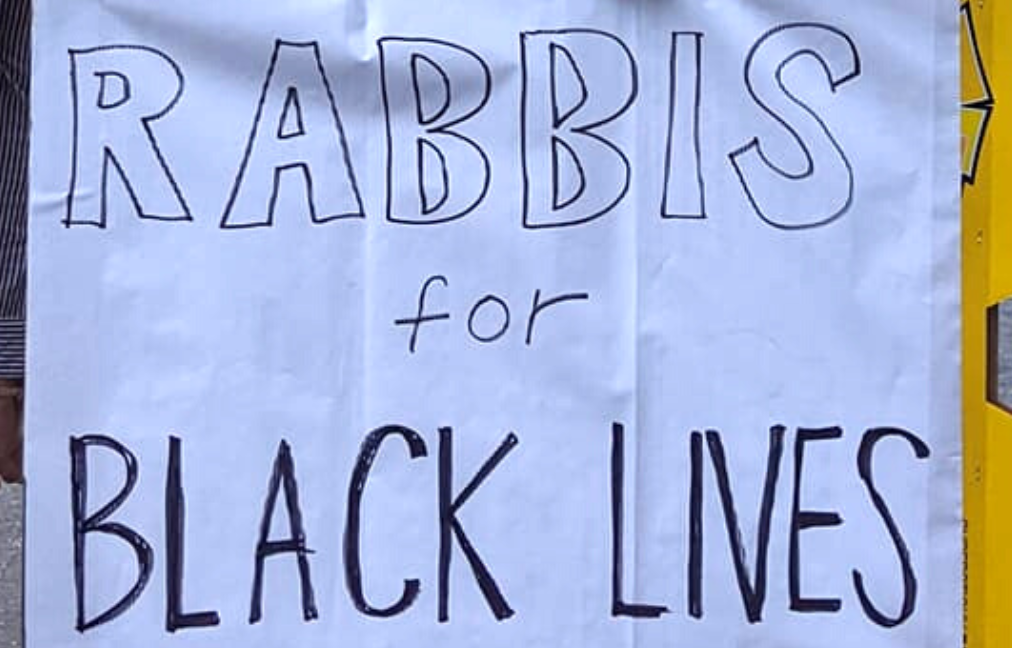T’ruah affirms, first and foremost, that Black lives matter.
The United States is built on hundreds of years of systemic exploitation of Black people’s labor and bodies, including violence, dehumanization, and murder; genocide and land-theft from Indigenous peoples; and other forms of racial oppression perpetrated by individuals and society.
In the text we read on Yom Kippur, the prophet Isaiah calls on us to identify structural injustices in our society and to redistribute power equitably and justly: “To unlock fetters of wickedness, And untie the cords of the yoke To let the oppressed go free; To break off every yoke” (58:6). We locate the core of the present unjust distribution in racism.
During the Israelites’ 40-year wandering in the desert, Korach attacked the leadership of Moses by saying that the whole people are holy. In a midrashic expansion, our rabbis portray Korach preferring sweeping generalizations, while Moses–our ultimate rabbi–hones in on particular, specific needs. (Tanchuma Korach 2, gloss by Rabbi Mira Wasserman) Amidst all the varieties of injustice in our world, we follow Moses’ teaching when we specifically lift up racism and its effect on Black lives.
These teachings of Moses and Isaiah–naming specific needs and identifying structural power shifts–will be our guiding stars. We will hold ourselves accountable to pursuing racial justice in relationship with Jews of Color–within our organization and beyond–and with Black- and brown-led organizations.
T’ruah’s racial justice commitments fall into the following three categories:
Make T’ruah more representative of the racial diversity within the Jewish community. Diverse teams are more creative, resilient, and effective. Building our team with an eye towards inclusivity requires:
- Striving to ensure that our process of recruiting, training, and retaining staff creates a racially and otherwise diverse staff team.
- Striving to ensure that our board always reflects the evolving racial and other diversity of the Jewish community.
- Striving to recruit rabbinical/cantorial students of color into our fellowship and training programs, and to support these students in developing their leadership.
Strengthen T’ruah’s organizational culture. Racism and white supremacy are endemic parts of American culture; therefore, we must make ongoing and concerted efforts to understand where they show up at T’ruah and to counter them with active anti-racism. This includes:
- Committing to ongoing racial justice training for all staff and board members.
- Opening and maintaining a space for ongoing conversation about racism.
- Striving to promote a safe and supportive environment for people of color, including attending to the ways white supremacy culture shows up in our organizational culture to the detriment of all staff and seeking ways to address these behaviors.
- Holding the Jewish value of dan lekhaf zechut, offering the benefit of the doubt, and taking mistakes as learning opportunities, while also honoring and responding to the actual impact that words and behavior have, regardless of intent.
Keep this process ongoing and iterative. The work of becoming an anti-racist organization is urgent and also never complete–including this statement, which we release knowing it is imperfect. To keep this work alive, we commit to:
- Developing SMART goals for each of these commitments.
- Creating an evaluation process to see how we are making progress on these goals.
- Continuing to explore our language to ensure it is maximally inclusive and respectful.
- Continuing to expand our familiarity with and inclusion of the full diversity and wealth of Jewish culture.
- Maintaining ongoing dialogue with both chaverim and partners outside T’ruah, to learn from people with more experience who can help us see our growing edges.
Some milestones to date on our anti-racism journey include:
- Offering a generous family leave policy (by U.S. standards) and robust benefits to all employees.
- Creating an internal racial justice committee that began meeting in January 2018.
- Providing initial racial justice training for both our staff and our board in spring 2019, and supporting some staff to pursue additional training externally.
- Expanding our programs, resources, text studies, and weekly Torah commentaries to proactively include the voices of Sephardim/Mizrahim/Jews of color.
- Improving our hiring processes by ensuring that interns are always paid, job descriptions always list salary, job qualifications remove such unnecessary hurdles as advanced degrees, and recruitment efforts include a special emphasis on people of color.
- Applying a racial justice lens to all of our campaigns, including articulating the ways in which racism plays out in incarceration, policing, immigration, and workers’ rights.
- Being accountable to partner organizations led by people of color, and supporting our members and other predominantly white coalition partners to do the same.
We commit to making antiracism a priority, in partnership with other organizations, including and especially those led by Jews of Color and other people of color.
The Torah calls Moses “more humble than any man on Earth” (Numbers 12:3). Taking this too as guidance, we proceed with humility and a learning mindset as we strive to live up to Isaiah’s charge: “You shall rebuild ancient ruins, You shall establish afresh foundations laid long ago. And you shall be called ‘Repairer of fallen walls, Restorer of pathways for living’” (56:12).

